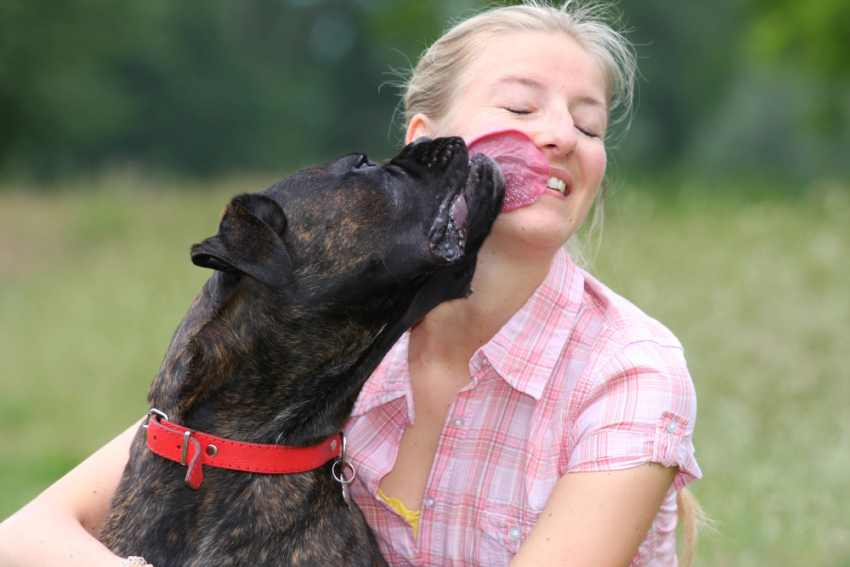Dogs have long held the esteemed title of “man’s best friend,” and one of the most enduring displays of their affection is their propensity to lick their human companions’ faces. While some may find it endearing, others might be left wondering, “Why dogs lick your face?”
This seemingly simple behavior is rooted in a complex interplay of evolutionary, social, and psychological factors that have evolved over centuries. In this blog post, we will delve into the fascinating world of canine communication to uncover the reasons behind this unique display of affection.

Evolutionary Origins:
To understand why dogs lick human faces, it’s essential to trace the behavior back to its evolutionary roots. Domestic dogs share a common ancestor with wolves, who engage in licking behavior within their packs as a form of social bonding. Licking serves various purposes in the wild, such as reinforcing social bonds, communicating submission, and maintaining group cohesion.
Over time, as dogs became domesticated, their social dynamics evolved to include humans in their pack structure. Once a behavior reserved for fellow canines, Licking extended to include their human companions, creating a bridge between two species that share a unique bond.
Communication and Social Bonding:
In the canine world, licking is a multifaceted form of communication. When a dog licks your face, they are expressing a range of emotions and intentions. One primary purpose is to communicate affection and reinforce the bond between dog and human. Dogs are highly social animals, and licking serves as a way to establish and maintain social connections.
Furthermore, licking can be a submissive gesture in the canine language. By licking a person’s face, a dog may be signaling deference and acknowledging the human’s role as the pack’s leader. In this way, the behavior reflects the dog’s desire to be part of the social structure and maintain harmony within the family unit.
Taste and Scent:
Dogs experience the world through their senses, and licking is a way to gather information about their environment. A dog’s sense of taste and smell is highly developed, and licking provides valuable sensory input. When a dog licks your face, they taste the salt on your skin and absorb your unique scent.
Dogs have a remarkable ability to remember scents, and licking serves as a way for them to familiarize themselves with your scent, creating a stronger sense of connection and recognition. This behavior is deeply ingrained in their evolutionary history, where scent played a crucial role in communication and survival.
Positive Reinforcement:
In addition to the inherent evolutionary and social aspects of licking, dogs also learn through positive reinforcement. If a dog licks its owner’s face and receives a positive response, such as petting, verbal praise, or other forms of attention, it will likely repeat the behavior.
This positive reinforcement creates a cycle where the dog associates licking with positive outcomes, further strengthening the bond between dog and owner. Over time, this learned behavior becomes a habitual way for dogs to express affection and seek attention from their human companions.
Health Benefits:
Believe it or not, some health benefits may be associated with a dog licking your face. Dogs have natural antibacterial properties in their saliva, which may help clean wounds or promote healing. Some experts suggest that exposure to the diverse microbial community in a dog’s saliva could boost the human immune system.
While these potential health benefits should be taken cautiously and may vary from dog to dog, it adds an intriguing layer to the multifaceted nature of the canine-human relationship.
Conclusion: Why Dogs Lick Your Face
In the intricate tapestry of canine behavior, licking a human’s face is a remarkable expression of love, communication, and bonding. Rooted in the evolutionary history of wolves and refined through centuries of companionship with humans, this behavior encapsulates the unique connection shared between dogs and their human counterparts.
As dog owners, understanding the motivations behind this seemingly simple act allows us to appreciate the depth of our relationship with our furry friends. Whether it’s a display of affection, a form of communication, or a learned behavior reinforced by positive interactions, a dog’s lick is a testament to the enduring bond between humans and their loyal companions.
I hope that this answers your question about why dogs lick your face.

